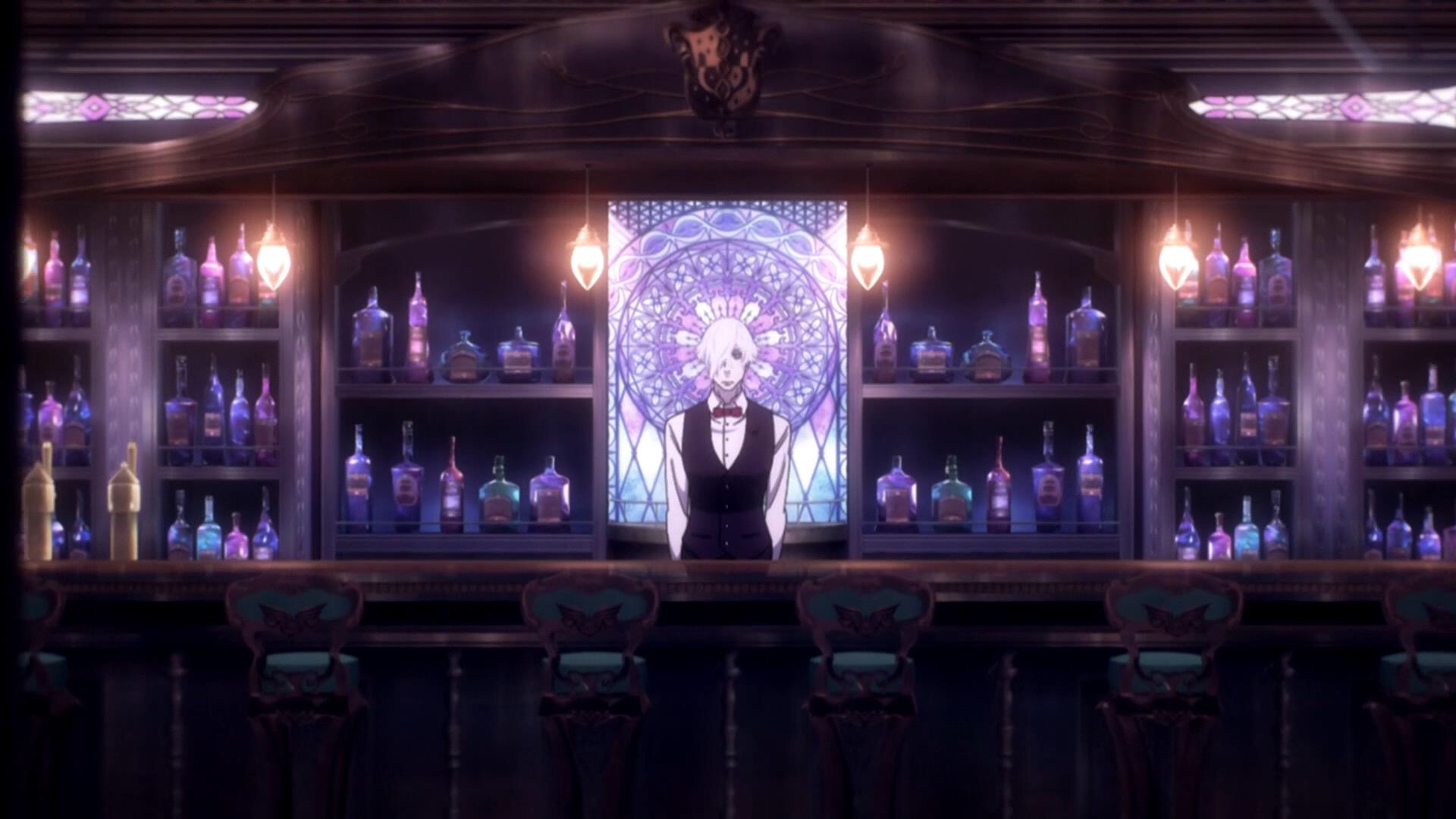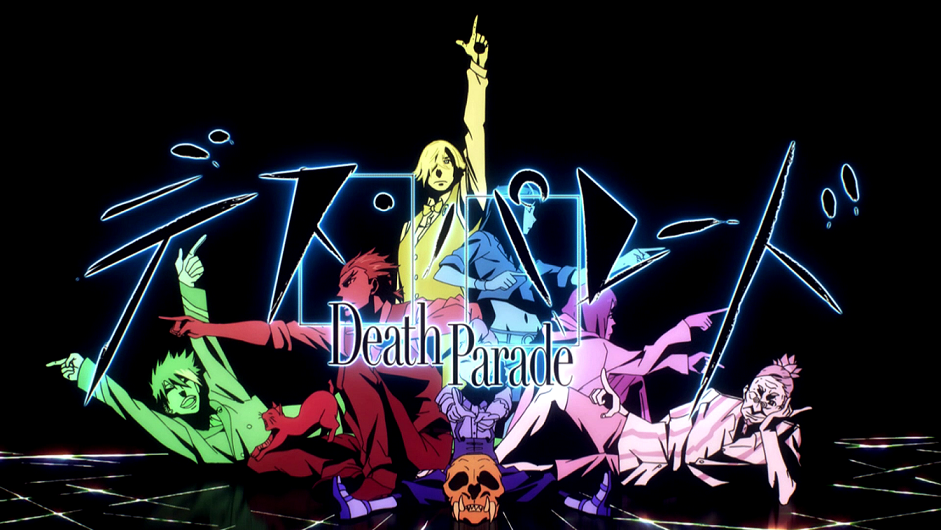Death Parade takes place at The Quindecim Bar, a bar whose host and arbiter Decim serves to guide guests along to the afterlife. Quindecim itself is the last step between life and death. Here, humans are allowed a chance at reincarnation or are otherwise cast into endless oblivion and death.
The 12 episodes of Death Parade are structured in such a way that each episode can be watched independently save for the last which should be watched only after the previous 11 have been seen. Each episode features a set of new characters and a game that is designed to bring out their true selves all in an attempt to pass sound judgment on them. The characters in each episode are unaware of the circumstances of their death and are allowed to participate in the featured game to earn some kind of false reward. Throughout the episode, the story and circumstances surrounding the death of these participants are slowly unveiled displaying their imperfections and their sins. The episodes of Death Parade all build up in intensity as participants are pushed to their limits and to the edge of their self-control before crossing the line and revealing who they truly are. Naturally, these episodes end with some sort of judgment as seen when the featured contestants once more ride the elevators that took them to Quindecim in the first place. The masks above the doors change to imply the verdict that has been set upon each of them leaving one with an idea of the judgment that was passed on the character.

The anime is structured in such a way that it is essentially an exploration into morality – an attempt to elucidate right from wrong. It does so by using the concept of death and building around the idea that while death is inevitable, people naturally want to escape from it. The utilization of this paradigm is handled very well in Death Parade serving as the backbone and premise for the games of the Quindecim bar. The rules of each game are perfectly matched and designed to bring out the worst of those particular characters who fight under the influence of this inherent survival instinct. This plot device allows the show to do what it was meant to do – to explore the morality behind certain situations. Ironically however, some of the games end up bringing out the best in people as well allowing for their reincarnation. The best thing that Death Parade does for its characters however is that it somehow manages to show how these participants are at their worst and at their best under different circumstances which ultimately moves the judgment into a gray area of sorts.
The show eventually reveals that there are arbiters other than Decim who in turn also pass judgment on humans. Through this, Death Parade manages to show that judgment is, as the title implies, arbitrary. While the judgment of one might be that an individual deserves death, the judgment of another may be that the same individual deserves reincarnation. Again this highlights the idea that judgment is normally gray and that while a viewer’s verdict may differ from that in the show, it doesn’t make that conclusion wrong.

The final verdict seen at the end of every episode serves as a point for reflection for all viewers. Throughout the episode, the viewer inevitably finds his or herself coming to some sort of decision or conclusion regarding the ultimate fate of each participant. This self-formed verdict becomes an interesting point of reflection when the viewer’s conclusions do not match that of the show. During these instances, I instantly found myself trying to understand the reasoning behind the judgment in the series. It is for this exact reason also that the show stands out much more when watched with friends and peers. The conclusion of each episode tends to spark a discussion that involves deeper levels of reasoning. While not a component of the show itself, the social aspect involved with watching Death Parade elevates the quality of the anime substantially.
Death Parade is a show that while already good as it is, would have benefited from a longer run. Making the short 12 episode anime into a 2 cour series would have allowed each episode to be expanded and fleshed out more. Doing this would have allowed Death Parade to really push its limits and go beyond the need to build up intensity for every episode. While the entertainment factor was high, the series could have been exponentially better if it was given more time to focus on building on its main characters as well as the participants of each game.
As an aside, the opening of Death Parade on its own is a highlight of every episode.
